Field Stories
Ten inspiring global nutrition stories
December 17, 2024
WP_Term Object
(
[term_id] => 2025
[name] => Stories
[slug] => all-stories
[term_group] => 0
[term_taxonomy_id] => 2025
[taxonomy] => news-category
[description] => Discover the personal stories of people whose lives have been impacted by better nutrition, and those working tirelessly to deliver it, and what’s top of mind for our technical experts as they share the latest on cutting-edge nutrition research, policy updates, and implementation guidance.
[parent] => 0
[count] => 336
[filter] => raw
)
Girls’ club boosts confidence and takes on malnutrition
Girls’ club unite! Meet a Grade 8 student in Ethiopia speaking up on the issues of nutrition and menstruation.
Posted on October 4, 2024
The drama begins with a captive audience and a speaker strong in her delivery. But the point of this play is to do more than perform—it’s to share knowledge. The audience made up of classmates and peers, the actor a leader of the school’s girls’ club.
The speaker, Meseret, is a Grade 8 student in Durame, Ethiopia.
When asked what health challenges adolescent girls face in her community, Meseret cites a list of concerns. “In my community, child labor, circumcision for young girls and lack of focus on education causes harm to teenagers’ health,” she shares. “Especially for teenage girls. Teenage girls have lower grades. They have lower grades because their home life is problematic. They are pressured to work, to do chores, so they can’t study.”
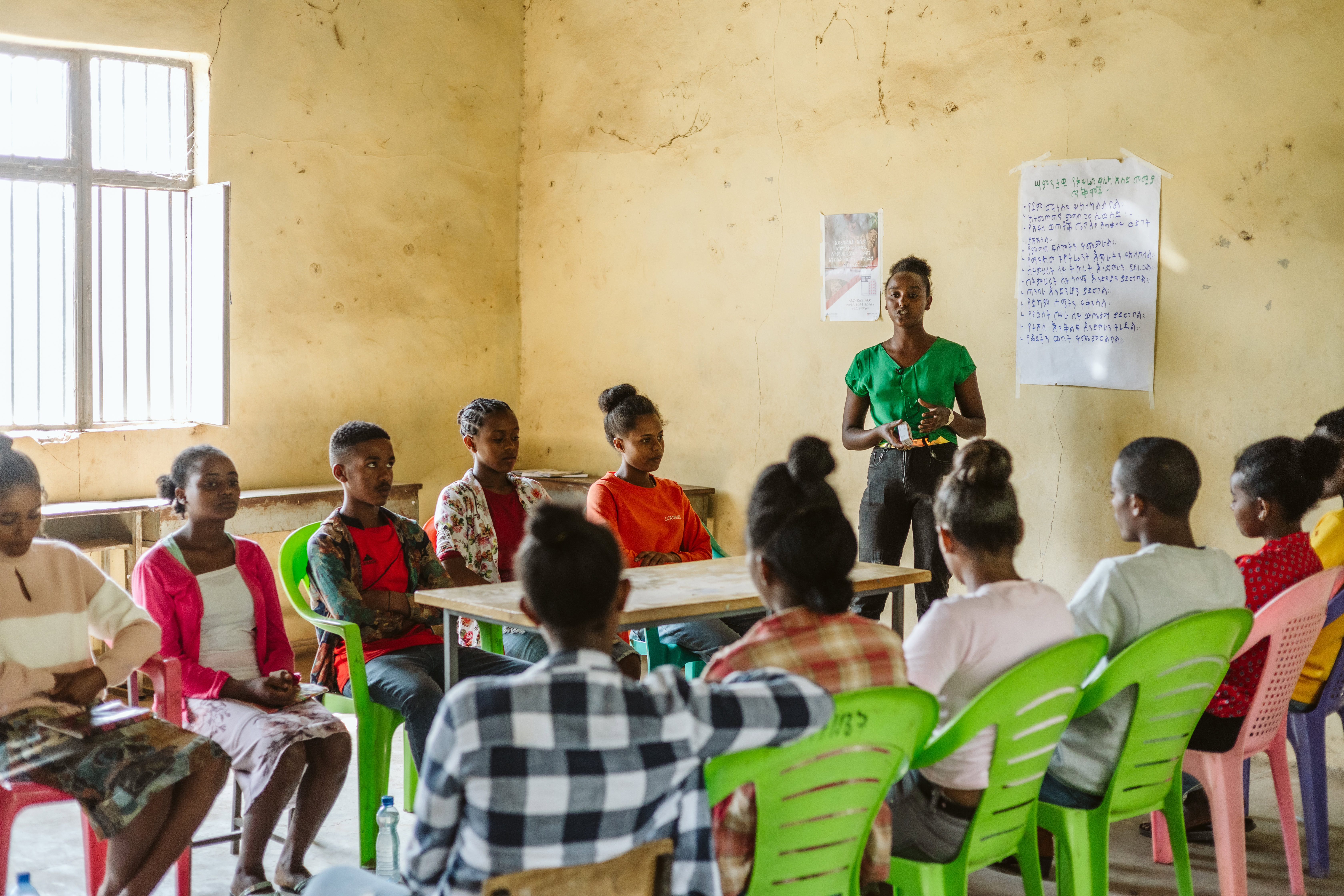
Meseret is an example of a student who’s looking to change the status quo through her work as a leader within her school’s girls’ club. Encouraging her peers and their families to prioritize school is one of the club’s messages. Meseret speaks with her fellow students about the different issues they may be facing, such as demystifying menstruation, decreasing stigma and ensuring adolescent girls know where to access menstrual health and hygiene products. They also discuss what anaemia is and how to prevent anaemia through a diversified diet and why weekly iron and folic acid supplementation (WIFAS) is needed to get enough of these key micronutrients. These are some of the messages portrayed in classroom plays.
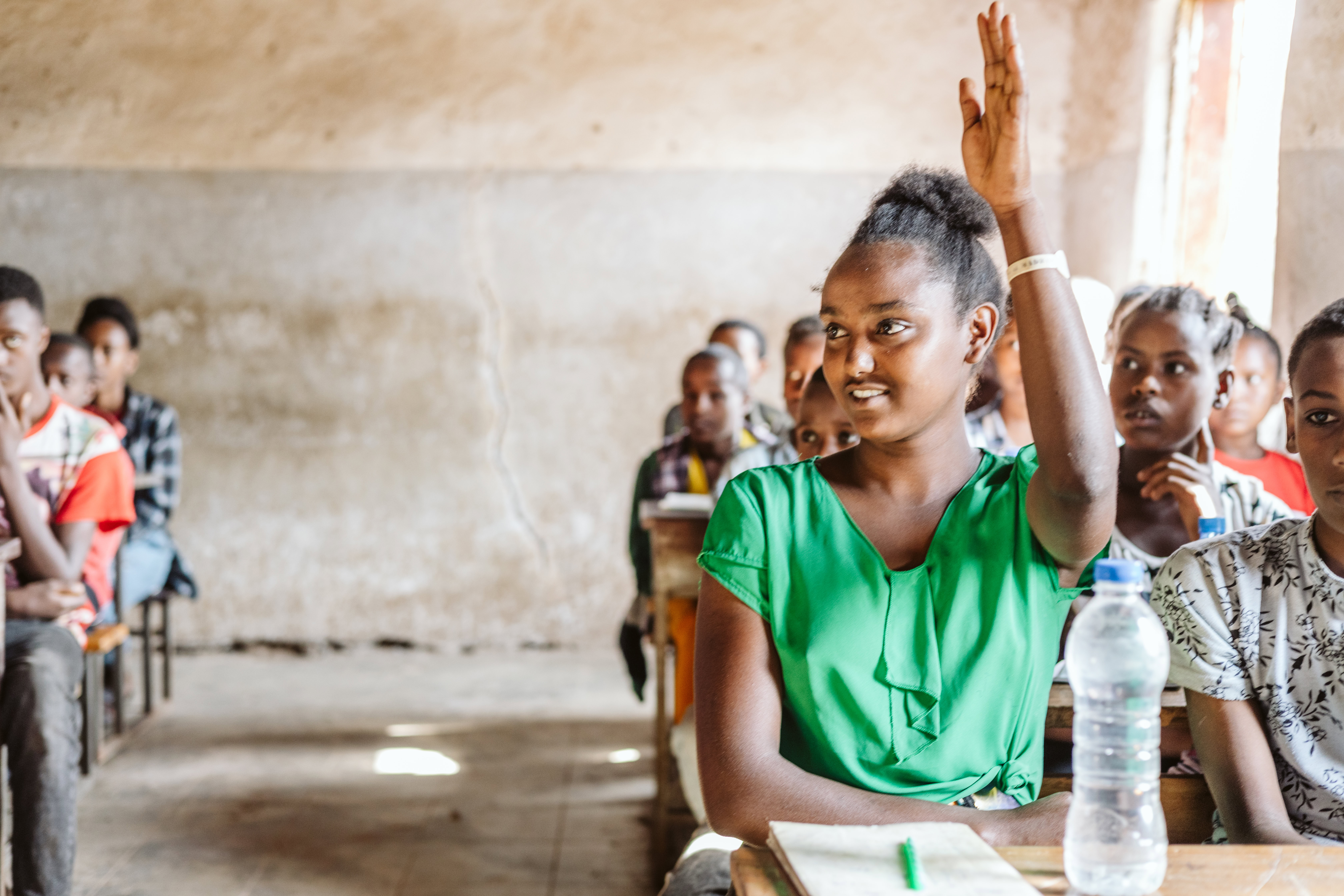
“It is important to have a proper diet for adolescents, aged 10 to 19, because this is the time a lot of changes, a lot of development takes place, especially for girls,” Meseret says. “Therefore, we must eat foods like fruits, vegetables, meat and eggs.”
Although Meseret is now an active participant of her school’s adolescent nutrition program, it wasn’t always so. She says she initially had misconceptions about WIFAS as it wasn’t familiar to her or to her family. Through nutrition education came understanding. “In addition to [iron-rich] food, there is an iron and folic acid supplement we take once a week to prevent anaemia. A student with anaemia will not be able to focus on schoolwork,” she shares.
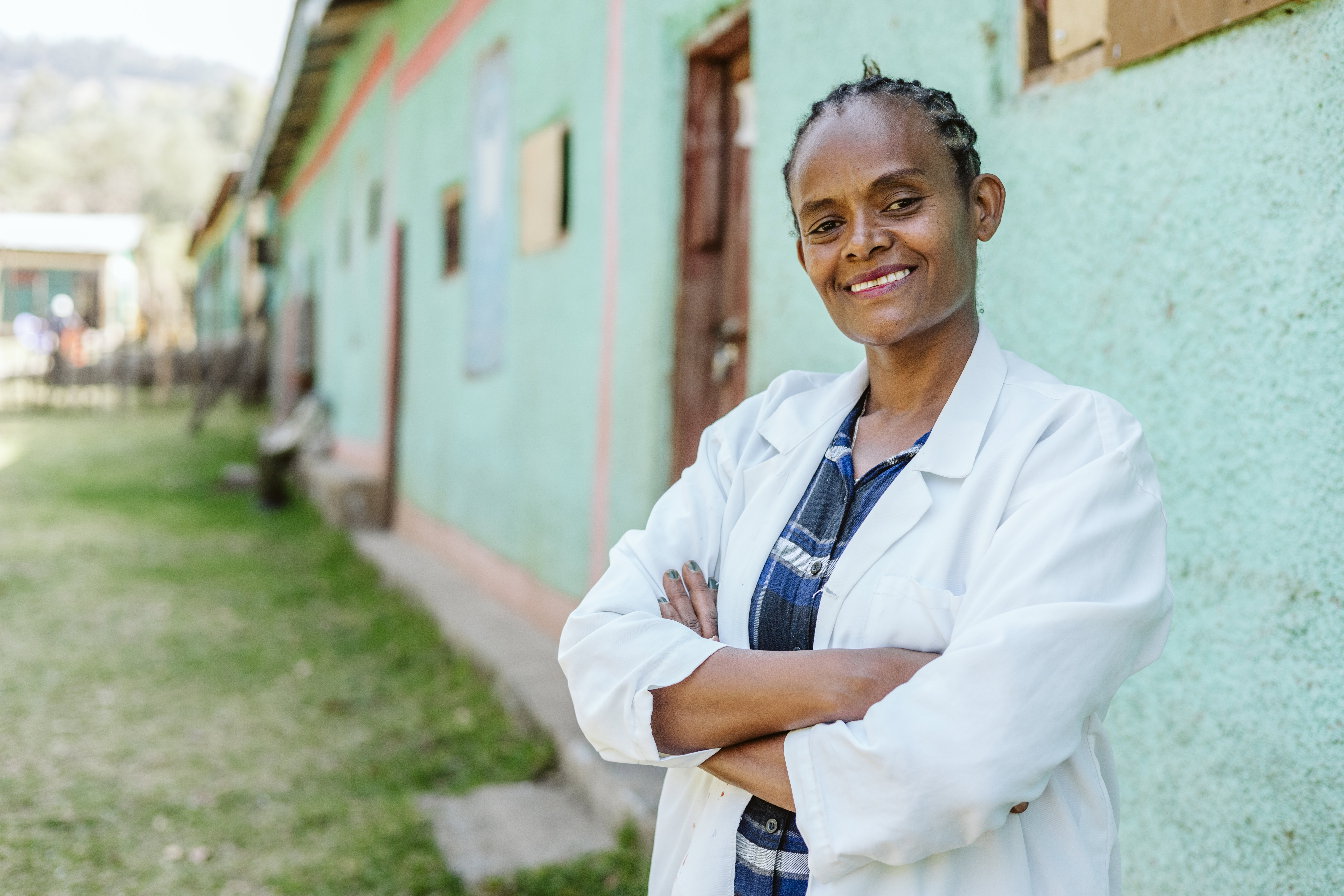
Seble Degenet is a teacher at Meseret’s school. She’s also the teacher in charge of the distribution of iron and folic acid supplements and supports the nutrition education program. She participated in a training facilitated by Nutrition International in collaboration with the zonal health and education departments. She puts that training into practice in the classroom. Every Wednesday, adolescent girls between the ages of 10 and 19 receive an iron and folic acid supplement.
Initially, it took time to ensure students and families understood the WIFAS program and why it was happening. “In the beginning there were issues with accepting the program. There were misconceptions, like it will cause infertility, cause insomnia, and decrease appetite. There were problems like that. We addressed these problems by working together with health professionals to educate the students and in turn the students took what we were teaching them and put it into practice,” Seble shares.
The nutrition education doesn’t only involve adolescent girls, but boys are also active participants.
Eyuel is a Grade 8 student who aspires to be a doctor. “If we have good nutrition, our development will improve, our bodies will grow, and our brains will develop.” Eyuel says a common problem he sees is that girls are more at risk for malnutrition, due to different demands at the household level for chores and not being prioritized at meals.
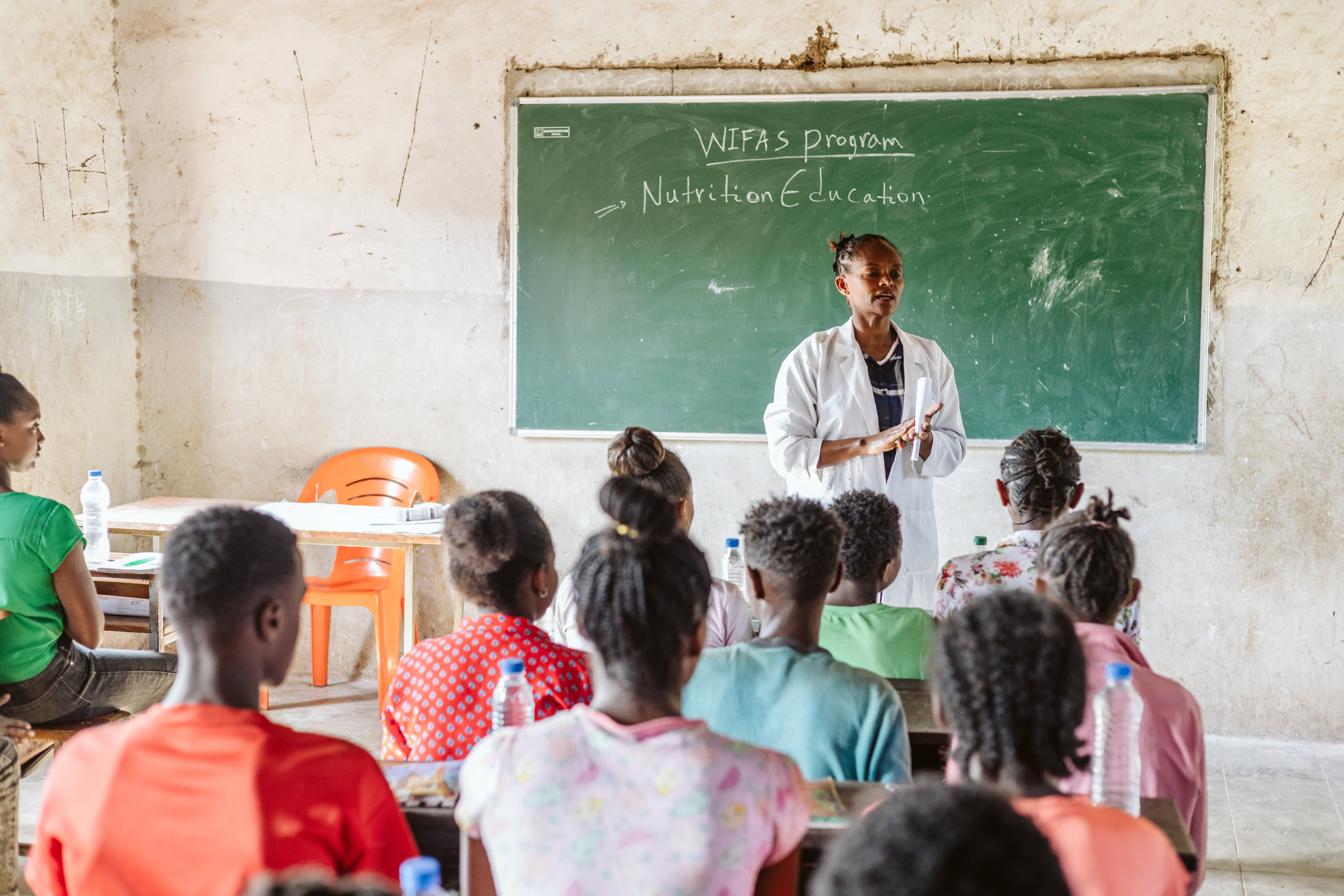
“I use the education given here to learn what proper nutrition means,” says Eyuel. “We should have proper nutrition because we are growing, and we need a good diet for our development. In our community girls don’t always have good nutrition so taking iron will help supplement their nutrition. I would like to see girls have the same opportunity to study and work as boys.”
The adolescent program at this school is one example of it within the woreda. “We knew just like the program for mothers and children, nutrition for adolescents needed specific considerations to be implemented correctly and to effect large scale changes,” says Fitsum Tafesse, the Nutrition and Health Officer in Kembata Tembaro Zone, Kedida Gambela Woreda.
“My confidence in myself has increased a lot. Because if I believe in myself now, I will have even more confidence in myself later.
— Meseret, Motivator girl, Durame, Ethiopia
“During their menstrual cycle, adolescent girls lose iron and when they don’t have proper nutrition, they are at risk of anaemia. It is clear that when they have anaemia, their school performance suffers. They can’t be attentive in class, they drop out of school, you see a decrease in their attendance,” Fitsum explains. “They think it is because they are not good in school which leads them to drop out of school. In addition, they are also pressured by their families and by their communities to get married, to work. The result is they get married young which puts them at risk for malnutrition and health problems. This is why we are trying to solve this problem by educating schoolwide.”
Nutrition International supported the government to initiate the adolescent nutrition program, which includes nutrition education for boys and girls and distribution of WIFAS for adolescent girls. “Because of education and the weekly iron and folic acid supplement distribution, we have seen improvements. Now, we would like to expand this into other regions because we have seen a change in their performance in schoolwork,” highlights Fitsum.
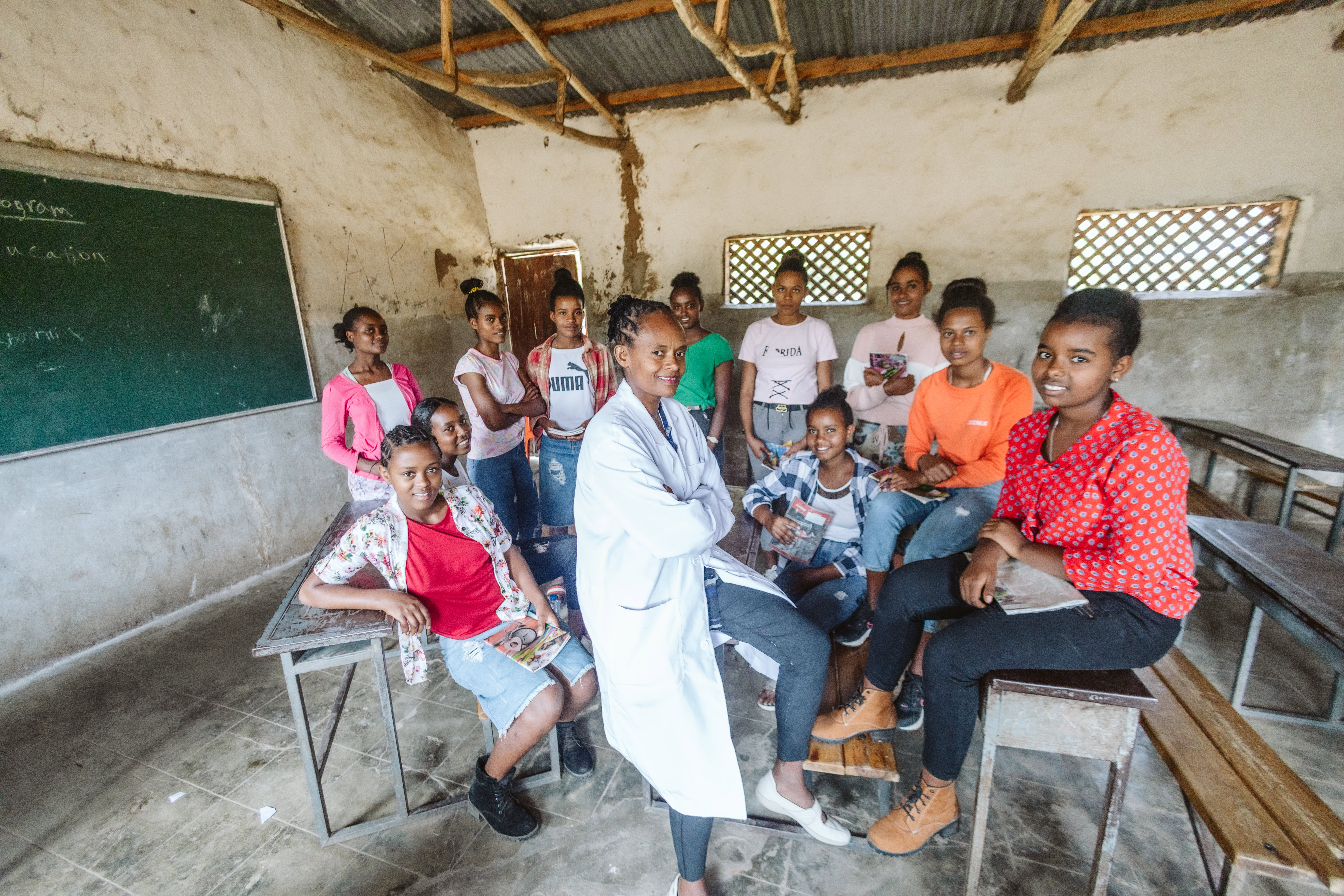
Since the start of the program, Nutrition International conducted training in partnership with the zonal education and health departments. This included planning to ensure teachers like Seble also received training and created a trickle-down effect to the community. Nutrition International also supports the procurement and monitoring the availability of weekly iron and folic acid supplements to prevent stockouts.
“It might look like it is a small contribution to facilitate the distribution of iron and folic acid supplements and teaching the community about it—but the changes it will bring is going to be big,” says Fitsum. “Helping improve the health of the community will play a big role in the development of the community.”
Meseret, who wants to be a scientist when she grows up, is a testament to that. “My confidence in myself has increased a lot. Because if I believe in myself now, I will have even more confidence in myself later. To see my future dream realized, today I must work hard to achieve my dream. To be a scientist in the future, I must work hard, and I must study hard.”
Learn more about our work in Ethiopia.